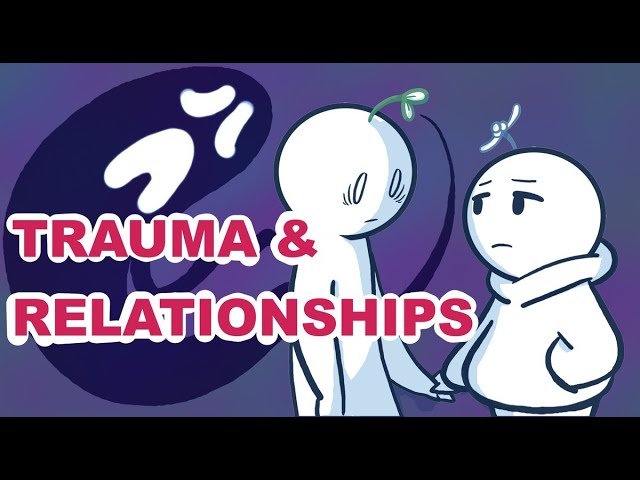In this blog post, we will explore the four types of trauma that can have a profound impact on your relationships. Whether you have experienced a one-time traumatic event or long-term trauma, it can affect the way you interact with others and the quality of your relationships. By understanding these types of trauma and how they may be impacting your relationships, you can take steps to heal and improve your interactions with others. Join us as we delve deeper into this important topic.
Introduction
Trauma is a form of psychological injury caused by a severe or distressing event, which may arise from experiences such as abuse, neglect, or natural disasters. While coping with trauma can be a struggle, it can have a significant impact on one’s relationships. Whether it’s with their partner, friends, or family members, unaddressed trauma can lead to negative patterns that affect future interactions.
In this article, we will explore the types of trauma that can impact relationships and provide tips for overcoming their negative effects. We will also share expert insights that help understand the origins of the problem and provide actionable steps for improving relationships. Additionally, we will discuss a related video on how trauma explains coping mechanisms and credit the researchers, writers, editors, script managers, voice-over artists, animators, and YouTube managers involved.
The 4 types of trauma that impact relationships
When it comes to trauma and our relationships, there are four main types of trauma that can cause lasting impact: rejection, abandonment, betrayal, and humiliation.
Rejection
Rejection is an experience in which someone feels unwanted or not accepted. It can have a significant impact on a person’s self-esteem and confidence, which can lead to relationship difficulties. When someone has experienced rejection, they may struggle to trust others, which can lead to difficulties in relationships.
Abandonment
Abandonment is when someone has felt abandoned, either physically or emotionally. It can lead to feelings of loneliness, helplessness, and isolation, which can make it difficult to form healthy relationships in the future. People who have experienced abandonment may be more likely to believe that others will leave them, which can affect their ability to form close connections.
Betrayal
Betrayal occurs when someone has been deceived or disloyal to. It can cause immense emotional pain, which can lead to difficulties in trusting others in future relationships. People who have experienced betrayal may be more likely to hold grudges and have a hard time forgiving others, which can lead to relationship difficulties.
Humiliation
Humiliation is a form of shame that someone experiences when they are publicly or privately had their self-worth put down. It can have significant effects on someone’s self-esteem and self-confidence, which can lead to difficulties forming healthy relationships. When someone experiences humiliation, they may be afraid of being judged by others, which can make it difficult to open up in relationships.
Tips for overcoming the negative effects of psychological trauma and emotional trauma
Overcoming the negative effects of psychological trauma and emotional trauma can be challenging, but it is possible. Here are some tips that can help:
-
Seek professional help: A therapist can help people explore their past trauma and work through it to improve their relationships.
-
Practice self-care: Engaging in self-care activities, such as exercise, meditation, or getting enough sleep, can help reduce the symptoms of trauma and improve mental health.
-
Define healthy relationship patterns: Those who have experienced trauma are likely to fall into negative patterns in their relationships. It is important to recognize these patterns and work towards healthy interactions that counteract these patterns.
-
Practice communication: Communication is essential in any relationship. People who have experienced trauma may need to work on their communication skills, which can help build stronger relationships.
-
Set boundaries: Setting limits in relationships is important for self-care and can help build trust between individuals.
Conclusion
In conclusion, trauma can have far-reaching effects on our relationships. The types of trauma that impact relationships are rejection, abandonment, betrayal, and humiliation. Recognizing these patterns and learning how to overcome the negative effects of emotional trauma and psychological trauma is essential for improving our relationships. Seeking professional help, practicing self-care, defining healthy relationship patterns, practicing communication, and setting boundaries are some actionable steps that can help heal from past trauma.
FAQs
-
Can trauma affect my relationships?
Yes, trauma can affect a person’s ability to form healthy relationships in the future. -
How can I overcome the negative effects of trauma on my relationships?
Seek professional help, practice self-care, define healthy relationship patterns, practice communication, and set boundaries are some actionable steps that can help heal from past trauma. -
Is it possible to form healthy relationships after experiencing trauma?
Yes, it is possible to form healthy relationships after experiencing trauma; it may require professional help and time, but it is possible. -
What are some signs that my trauma is affecting my relationships?
Feeling anxious or irritable during interactions, avoiding social interactions or becoming disengaged, and falling into negative relationship patterns are some signs that trauma may be affecting your relationships. -
Is therapy necessary to heal from past trauma?
While it is not the only option, professional help can provide essential tools for healing from past trauma and improving relationships.
Christopher Conway, the innovative mind behind “Love Blueprints,” is a seasoned relationship expert and author. His insightful guidance, drawn from years of experience and study, offers transformative strategies for modern love and dating. Christopher’s commitment to enhancing romantic connections has made “Love Blueprints” a go-to resource for those navigating the complexities of relationships.




